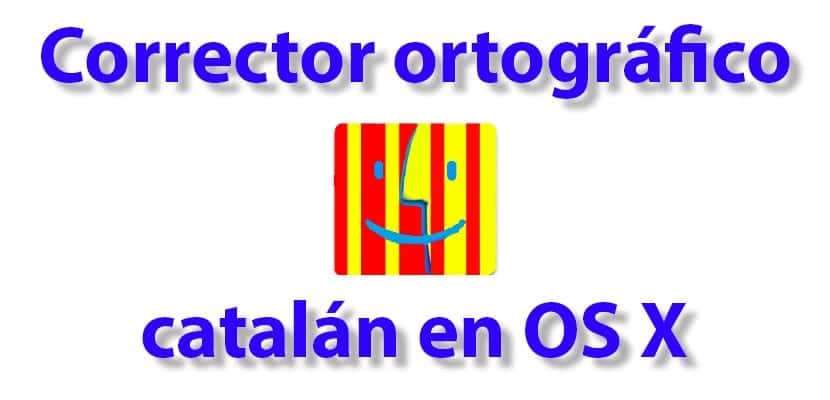
About 5 years ago, Apple introduced a good number of new languages to OS X. This is always appreciated, because no matter how well we master a language, we all like to see all the text in front of us in our mother tongue or the same in the one we think. That is, even if you are bilingual, there will always be a language that you are more proficient and in which you would like to see any text, and this also applies to operating systems and their user interface. This is something that happens, for example, in Catalonia, so today or we will teach how to install a spelling checker on OS X using the example of Catalan.
And the problem is that Apple included many languages about five years ago, but it is only for the user interface, menus, etc., of the operating system, but it is not able to know if we are writing well or badly in some of those languages. Unfortunately, in Cupertino they have not yet realized this and we will have to carry out a process if we want our Mac to tell us what words are we misspelling in Catalan or any language not supported in the OS X dictionary. We will detail this process below.
How to install Catalan spell checker on OS X
- The first thing we have to do is download the file from where we will extract the dictionaries. For this we can go to the Open Office extensions website and enter the Dictionaries section. At the time of writing this guide, the link is EAST.
- We can search for "Catalan", but right now the first one appears, so it would be a waste of time. We click on it and it will take us to another page like the one you have in the screenshot. Or better yet, the language we want to install is Catalan, we can save more time by clicking on THIS LINK.
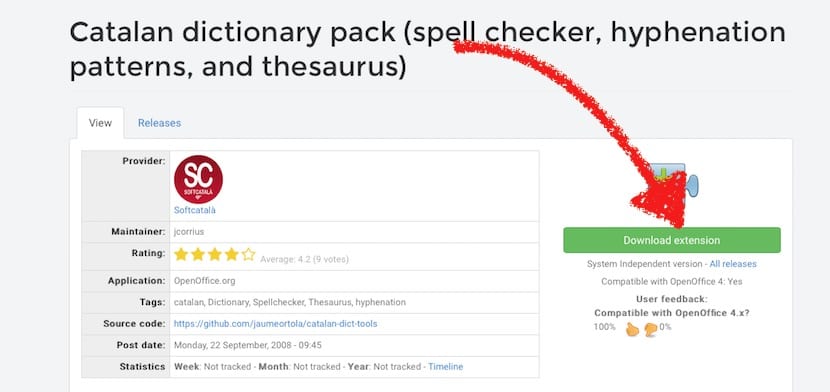
- We click on the «Download extension» that we see in the label with a green background.

- This will download a file with an .oxt extension that we will not be able to open, unless we do a trick: change the extension to .zip. We do.

- It will ask us if we want to change the extension. We accept.

- Inside the folder we have to look for two files that will have the same name, but with an .aff and .dic extension. In the case of the example in Catalan, the files are ca-ES-valencia.aff and ca-ES-valencia.dic.
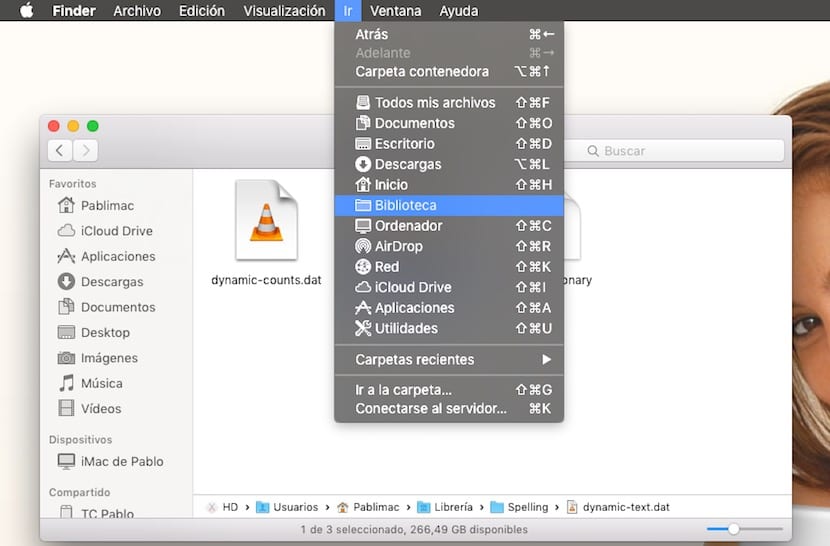
- We will have to put the two previous files in the Library / Spelling path. To access the OS X library, just open a Finder window and click on the "Go" menu while pressing the ALT key. You will see that the folder appears as if by magic.
- We open the "Spelling" folder and put the .aff and .dic files there.
- Next, we restart the Mac. If we don't, the changes won't be made and we won't see the new language.
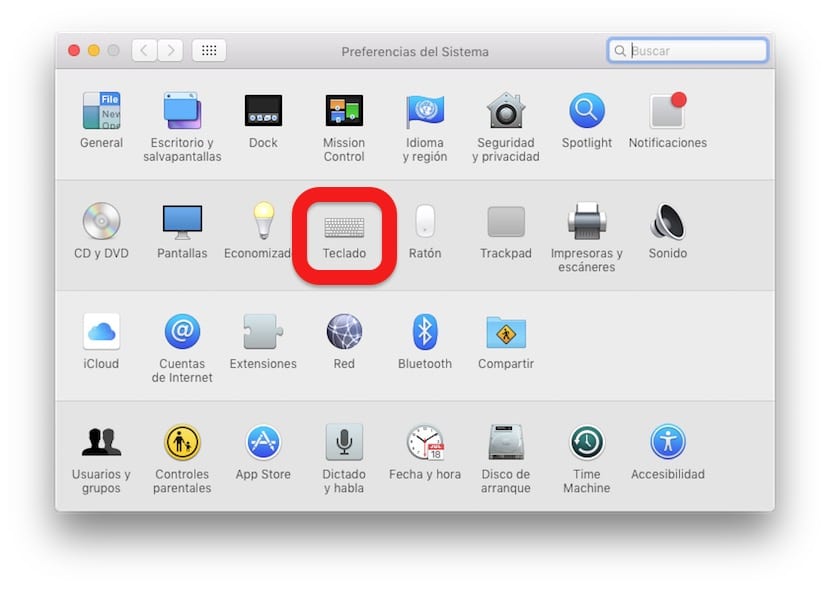
- Once the computer has restarted, we open the System Preferences and enter the Keyboard section.
- Within Keyboard, we enter the Text section.
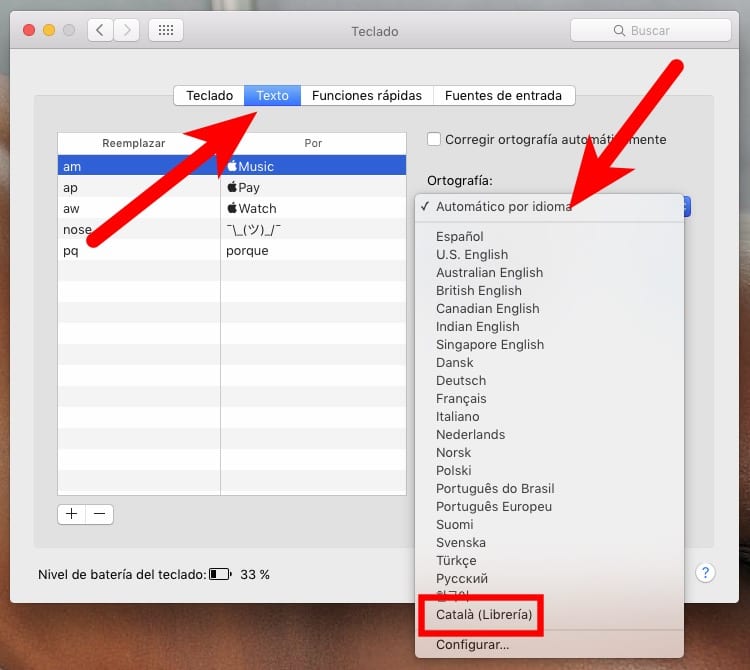
- Finally, we only have to display the Spelling window and select «Català (Library)».
With this we will see a Red line under each word that we misspell in Catalan. But we can also make the text correct for us automatically if we check the autocorrect box.
Is it worth activating the autocorrect in Catalan?
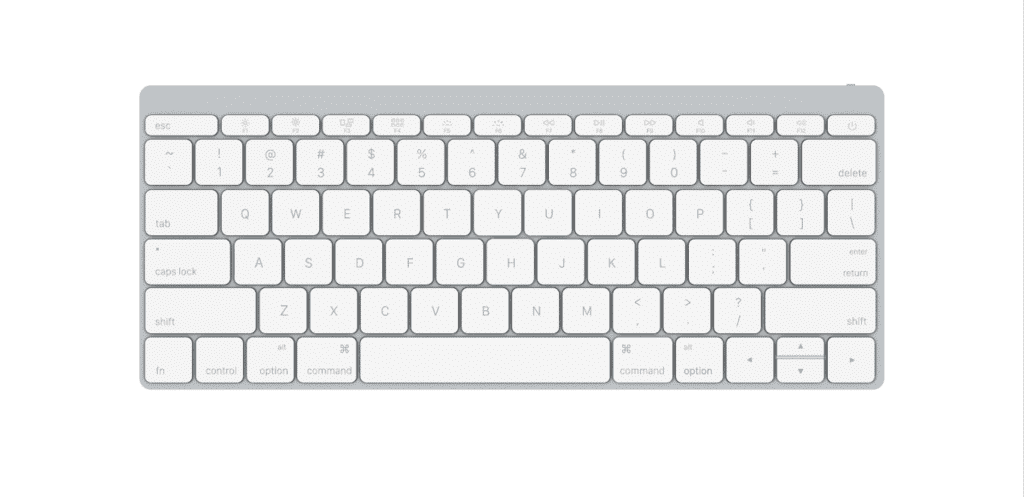
Well, logically, this will depend on each user. If I have to give my opinion, i would say no, absolutely. Why? Well, because, politics aside, we live in a country where there are several official languages. In the case of Catalonia, it is logical to think that they want to speak and write in Catalan, but what happens when the text forces us to put a word in Spanish with the autocorrect activated? If we are lucky, the system automatic correction or autocorrect will not find any match, it will detect that the word "is wrong" written and will underline it in red. But if the word looks like another in Catalan, it will change one for the other and the result will have nothing to do with what we wanted to write.
But as this is subjective, the best thing that each user can do is to check if the autocorrect. To do this, just check the box and start using the automatic correction, but not without taking into account the change we have made. Every time we finish writing a text we will have to check if all the words are written correctly and this is something we will have to do until we make sure that the OS X autorrector complies with what we expect. I know this is not a seductive idea, but it is necessary if you do not want it to happen to you as in the only time I have tried it: a while ago, I activated the automatic correction. I saw that he put all the words right and my satisfaction could not be greater. But, for work, I have to use words in different languages, most of the words being different from Spanish in English. I remember perfectly wanting to talk about the game "Goat Simulator" and that the autocorrect corrected the text to "Drop Simulator". As you can imagine, "Drop Simulator" doesn't seem to have anything to do with the crazy goat game, does it?
On the other hand, this system also allows us keep our own words. For example, suppose I want to write my name with "V" (because I am worth it x)). In that case, I would have to go to the section where we have changed the language and add the word "Pavlo" to the dictionary. The problem with this is that when we put the correct name, the system would suggest our custom word. This is something that you can see in the previous screenshot, where I have added a few to iOS but they have been automatically added to OS X, I imagine that by iCloud.
Needless to say, everything described in this guide it would also apply to any other language, but we would have to look for the .aff and .dic files for each specific case. "Ho teniu tot clar, right?"
I don't have a folder called Library
/ Users / username / Library / Spelling
Hello, thank you very much for the article! I get caught up in the step of looking for the library because it goes from Incio to Computer, I don't see the library in the middle. I have the Sierra. Do you know what I should do? How can I access the library?
I don't usually comment on posts but I have to thank you since you have really helped me a lot! Thank you!
Hello,
Sorry, I try but I'm still stuck in the step of compressing it .. I download it, I zip the folder and then it won't let me open it, how can I do it?
Thank you very much!
I can't understand that the Catalan corrector comes installed on the iPhone, iPad and, on the other hand, on Mac carrying the Ç key, it doesn't take it, impressive, I doubt that someone can explain it to me.
One of the possible explanations for the keyboard showing the «ç» is because it is also used in other languages, for example Portuguese
If you use the autocorrect, writing in Catalan with the corrector in Spanish is simply hell.
The tutorial is out of date.
There is plenty of personal opinion and, apart from politics, in many entities Catalan is necessary. Since it is a Romance language, it has similarities with Spanish, as well as with French, Portuguese, English and German, among others, so it can come into conflict when correcting each and every one of the words that we write.
Not installing this plugin for a user who lives, works and / or studies in Catalonia is an error.
I am sorry for your unfortunate comment as it is not an opinion, but a misconception product of ignorance resulting from little interest in finding out beyond your own navel.